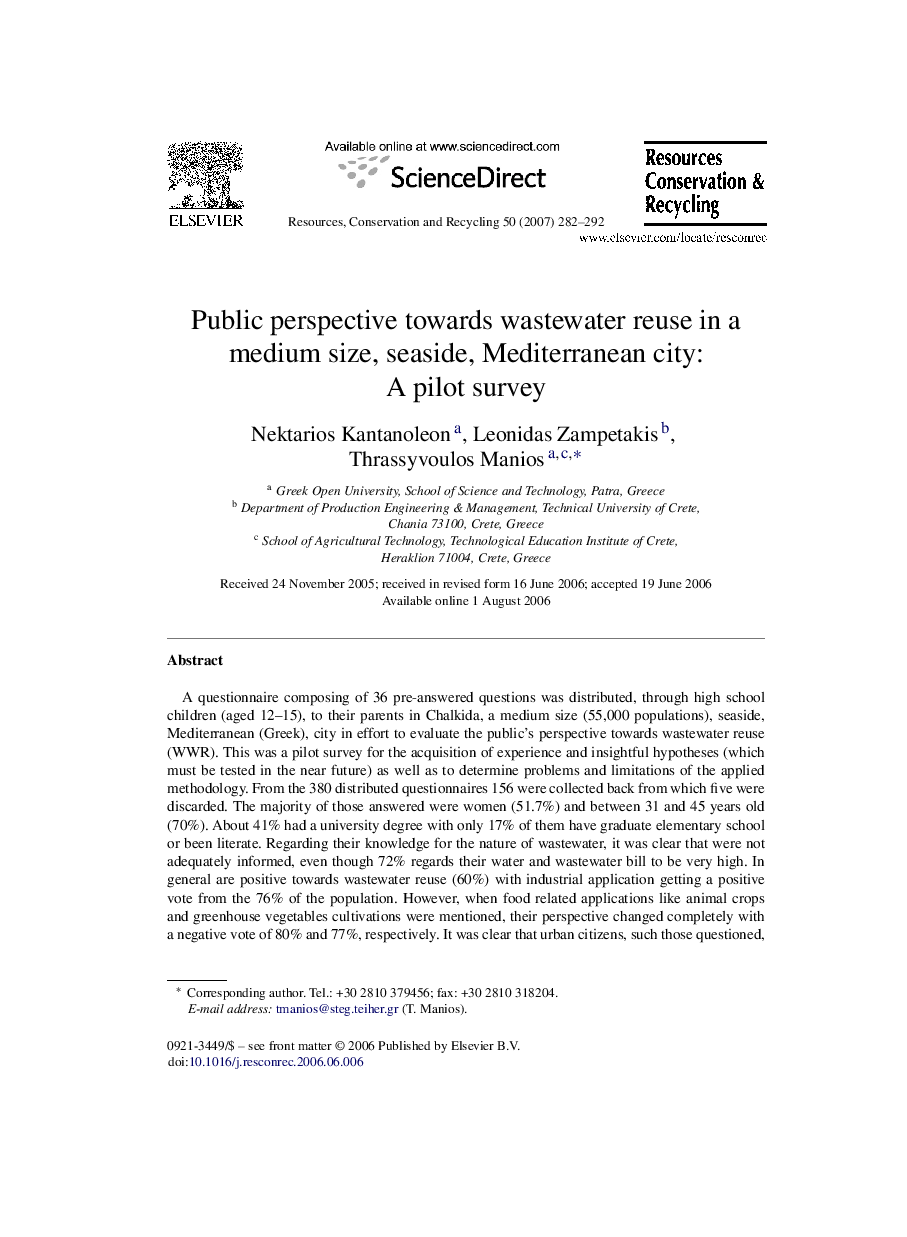| Article ID | Journal | Published Year | Pages | File Type |
|---|---|---|---|---|
| 1064282 | Resources, Conservation and Recycling | 2007 | 11 Pages |
A questionnaire composing of 36 pre-answered questions was distributed, through high school children (aged 12–15), to their parents in Chalkida, a medium size (55,000 populations), seaside, Mediterranean (Greek), city in effort to evaluate the public's perspective towards wastewater reuse (WWR). This was a pilot survey for the acquisition of experience and insightful hypotheses (which must be tested in the near future) as well as to determine problems and limitations of the applied methodology. From the 380 distributed questionnaires 156 were collected back from which five were discarded. The majority of those answered were women (51.7%) and between 31 and 45 years old (70%). About 41% had a university degree with only 17% of them have graduate elementary school or been literate. Regarding their knowledge for the nature of wastewater, it was clear that were not adequately informed, even though 72% regards their water and wastewater bill to be very high. In general are positive towards wastewater reuse (60%) with industrial application getting a positive vote from the 76% of the population. However, when food related applications like animal crops and greenhouse vegetables cultivations were mentioned, their perspective changed completely with a negative vote of 80% and 77%, respectively. It was clear that urban citizens, such those questioned, behave more as frightened consumers. Their greatest fears are related to inappropriate food production and dangerous consumption, and as a result when reuse suggested applications became increasingly related to food they were presenting an increasingly negative approach. This, in correlation to their fear of a chemical toxic substance in the wastewater (primary reason of WWR hesitation according to their responses), which can not be removed with existing technology (71% believe that) and by authorities (private or public) that can not be trusted (more than 60% of those answered feel this way) explain their hesitations. This pilot study revealed that the public presents a strong hesitation towards any wastewater reuse application schemes related to food production, partially due to lack of adequate information as well as trust towards ruling and monitoring bodies.
